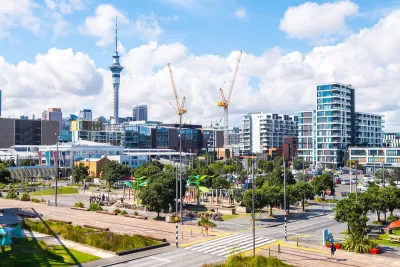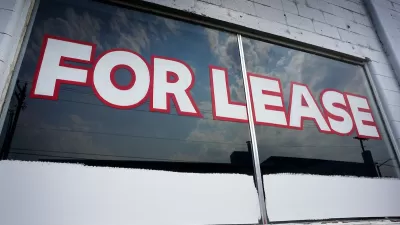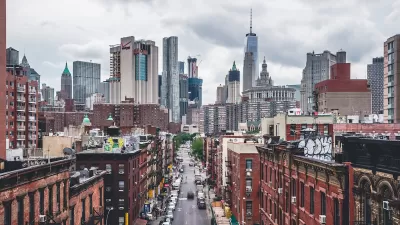New national rules will prevent local councils from limiting development in an effort to ease the nation’s housing crisis.

New Zealand plans to ease zoning restrictions to allow for more housing development, reports Charlotte Graham-McClay for the Associated Press. New legislation requires cities to free up land for development and accommodate projected growth for the next 30 years, rather than the three years required by prior regulations.
The new rules prevent local councils from imposing urban boundaries or banning mixed-use development. They will also prohibit local councils from mandating balconies, minimum sizes, and other requirements that make development more expensive.
Housing costs in the country have soared in the last two decades and remain much higher than in 2019. New Zealand renters spend a higher percentage of their income on rent than residents of any other country, according to the Organization for Economic Cooperation and Development.
Auckland, New Zealand’s largest city, saw success with a similar policy introduced in 2016, which led to a significant boost in construction and lower housing costs.
Some legislators opposed the change, saying that urban growth won’t be sustainable without additional government investment in infrastructure, and that sprawl could destroy valuable agricultural land.
FULL STORY: New Zealand will radically ease zoning rules to try to relieve its housing shortage

Trump Administration Could Effectively End Housing Voucher Program
Federal officials are eyeing major cuts to the Section 8 program that helps millions of low-income households pay rent.

Planetizen Federal Action Tracker
A weekly monitor of how Trump’s orders and actions are impacting planners and planning in America.

Ken Jennings Launches Transit Web Series
The Jeopardy champ wants you to ride public transit.

California Invests Additional $5M in Electric School Buses
The state wants to electrify all of its school bus fleets by 2035.

Austin Launches $2M Homelessness Prevention Fund
A new grant program from the city’s Homeless Strategy Office will fund rental assistance and supportive services.

Alabama School Forestry Initiative Brings Trees to Schoolyards
Trees can improve physical and mental health for students and commnity members.
Urban Design for Planners 1: Software Tools
This six-course series explores essential urban design concepts using open source software and equips planners with the tools they need to participate fully in the urban design process.
Planning for Universal Design
Learn the tools for implementing Universal Design in planning regulations.
Ada County Highway District
Clanton & Associates, Inc.
Jessamine County Fiscal Court
Institute for Housing and Urban Development Studies (IHS)
City of Grandview
Harvard GSD Executive Education
Toledo-Lucas County Plan Commissions
Salt Lake City
NYU Wagner Graduate School of Public Service





























